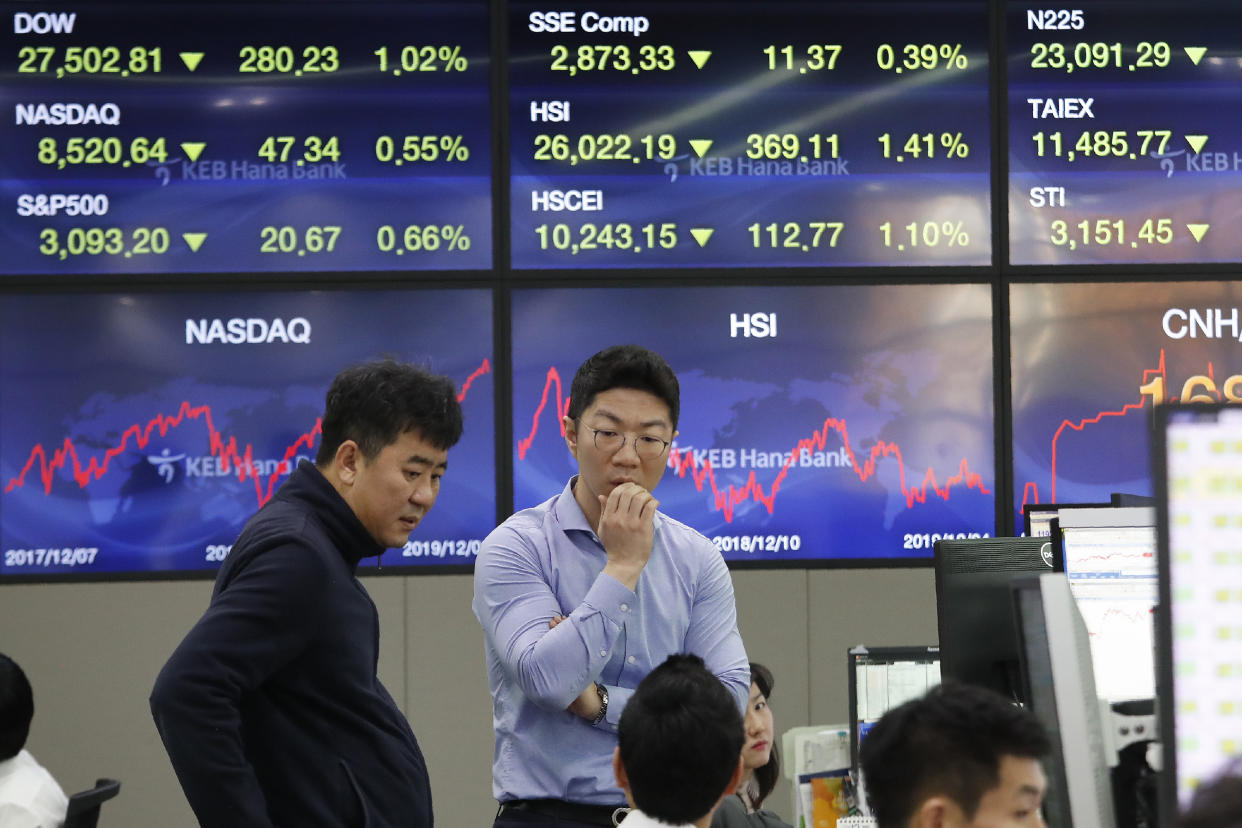Trade war fears drag down Asian markets

Asian markets closed lower on Wednesday amid growing uncertainty about the possibility of a US-China trade deal.
US president Donald Trump suggested on Tuesday that he could “wait until after the election” for a trade pact with the country, when markets had assumed that one could be eked out much sooner.
The news raised the prospect that US tariffs on the country will kick in on 15 December, rather than be waived as part of a trade deal.
It was a “nasty overnight session” in Asia, said Conor Campbell, a financial analyst at Spreadex, on Wednesday.
Stocks in Australia and Hong Kong bore the brunt of the pain, with Sydney’s ASX 200 (^AXJO) closing down almost 1.6% and the Hang Seng (^HSI) down almost 1.3%.
Japan’s Nikkei (^N225) also closed down by more than 1%, while Shanghai’s SSE Composite Index fell by 0.2% (^000001.SS).
Hopes that the US and China could reach a truce were part of the reason why global stocks had surged to record highs in recent weeks.
Investors are also weighing the impact of a vote in the US House of Representatives to sanction Chinese officials for human rights abuses — a move China has threatened to retaliate against.
“China today is saying that it will take necessary countermeasures to defend its interests, refused to set a timeline for a deal and stressed that a trade deal needs to be on the basis of ‘equality and mutual respect’ — not the one-sided deal that Trump is demanding,” said Neil Wilson, the chief market analyst at Markets.com.
Meanwhile, European stocks opened lower on Wednesday. They had already been under pressure on Tuesday after the US proposed $2.4bn-worth of tariffs on French goods including champagne, hand bags, and cheese overnight.


